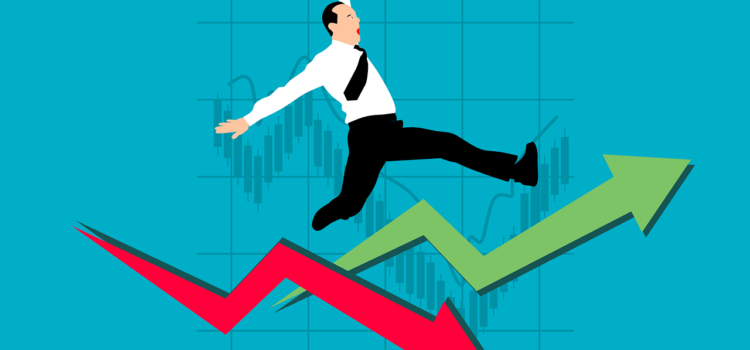
First off, some have been asking why I went dark the last few weeks. I ended up finishing my master’s degree in December and got a new job in January. I realized I needed to step away and recharge myself. I am back 😊 and so much has happened the last few weeks with politics, war, covid, inflation soaring, federal reserve hiking interest rates, potential recession, and the stock market starting to drop.
A lot of these items have been weighing on my mind:
While I am no genie able to predict the future, we can base our decision logically and rationally on historical data. Despite all recessionary periods in history, the market continues to grow. Companies continue to grow bigger. Technology improves our lives, and we grow as a society.
What is a recession?
Many of us remember the great recession in 2008/2009, where the stock market declined over 40%. Don’t forget the short Covid-19 recession where the stock market drop +30% in less than two months.
A recession can be identified through a decline in economic activity lasting months. During recessions we will see the stock market drop as well. Traditional definition of a recession is two consecutive quarters of economic decline (GDP) with rising unemployment. The National Bureau of Economic Research (NBER), defines a recession as a significant decline in economic activity spread across the economy, lasting more than a few months, normally visible in real GDP, real income, employment, industrial production, and wholesale-retail sales. On the other hand, a depression is much worse than a recession and can last years (think of the 1929 depression that lasted years).
Is there a looming recession?
I feel there is an increasing chance of a recession. We’re in a different period where inflation continues to increase (purchasing power decreases). The biggest factor which would falter our economy would be ill-timed actions by the Federal Reserve. It was announced recently, that the Fed would increase rates by 50bps (0.50%) in May.
The increase in Fed rates would increase the cost of borrowing. This results in higher interest rates from mortgages to car loans. In the last few weeks, rates on mortgages have increased to over 5%. This is quite surprising since these rates were only 3% a few weeks ago.
On a $250,000 mortgage, an increase in the interest rate from 3% to 5% would cost an additional $231 per month or $2,772 per year – talk about a lot in just interest!
Why does the Fed Increase Rates?
The Fed increases rates to slow borrowing and spending. They are primarily wanting to increase the rates to tame inflation, which is hovering around 8%.
The Issue:
The Fed increases rates to slow borrowing. The cost to buy a house or car goes up. Unless you have all cash for purchases, these higher costs of borrowing slows down the economy. This also can slow down the stock market growth. We’re in a pickle, where if the Fed is too aggressive in increasing rates to fight inflation, this could throw our economy into a recession.
How do we get out of a recession?
Increased monetary policy where the Fed pumps cash into the system. One way to do this is through lower the cost of borrowing. This is exactly what the Fed did to stimulate the economy after the housing crisis and covid crisis as well. We are in a feedback loop from the Federal Reserve.
What to do in a recession?
There is an increasing chance we go into a recession but remember to focus on the long term. A recession does not last forever.
Take away emotional reactions and focus on logic and long term buying opportunities. Recessions help tame inflation, which might be a good thing given how high inflation has been this year. Check out the Morningstar Annex Chart, this shows a graphic of the stock market from 1926 to 2020. Despite the Great Depression, World War, and numerous recessionary periods, the US Economy and stock market goes up – how much you ask? +10% annualized (assuming dividends reinvested).
Since the Covid-19 recession we had in 2020, the market with dividends reinvested is up over 60%! Investing in the down periods such as a recession will produce stronger market returns long term. It allows you to buy more shares at a lower price, especially when you concisely invest every month via dollar cost averaging.
Remember time in the market is more important than timing the market. Your financial future is up to you and only you. What are you going to do about yours?
Until next time,
Zach



Nate Tirey says
A great read – thanks for sharing!
Lana says
Thank you for reminding us that time in the market is more important than timing in the market
Excellent information!